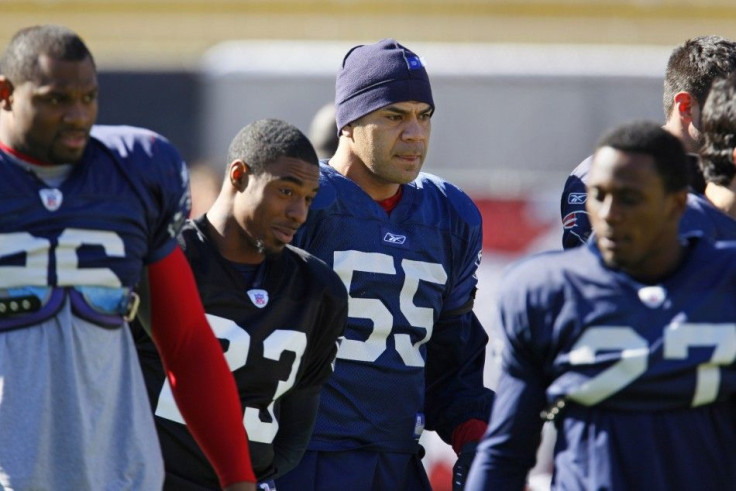Junior Seau Death: Seau's Family Agrees to Let Concussion Researchers Study His Brain

Junior Seau's family agreed to allow researchers to study his brain for signs of concussions after the San Diego Chargers linebacker killed himself Wednesday, Shawn Mitchell, the team's chaplain, told the Los Angeles Times.
The family was considering this almost from the beginning, but they didn't want to make any emotional decisions, Mitchell told the Times on Thursday night. And when they came to a joint decision that absolutely this was the best thing, it was a natural occurrence for the Seau family to go forward.
The San Diego County medical examiner ruled Seau's death a suicide on Thursday, a day after he shot himself at his home in Oceanside, Calif., news reports said. Seau left no note expressing his intentions or wishes about what should be done with his brain after his death, according to news reports. The research center chosen by the family hasn't been yet identified.
Although Seau, 43, never appeared on an NFL injury report with a concussion, his ex-wife, Gina, told the media on Thursday that Seau had numerous concussions and that he always played through them.
Taylor Twellman, a former Major League Soccer player, whose own career was shortened by a concussion and who now advocates for other athletes with similar conditions, said he had spoken to Seau about concussion-related problems, including headaches.
Seau's death from a self-inflicted gunshot to the chest drew comparisons to the death of former Chicago Bears defensive back Dave Duerson last year. Duerson asked his family to send his brain to Boston University to be studied for damaged tied to his playing days; the report showed signs of chronic traumatic encephalopathy (CTE), a degenerative disease of the brain found in athletes with a history of repetitive brain trauma.
© Copyright IBTimes 2024. All rights reserved.





















